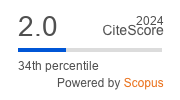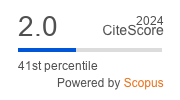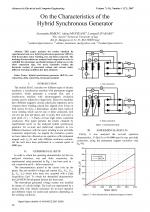| 2/2007 - 5 |
On the Characteristics of the Hybrid Synchronous GeneratorSIMION, A., MUNTEANU, A., LIVADARU, L. |
| Extra paper information in |
| Click to see author's profile in |
| Download PDF |
Author keywords
hybrid synchronous generator (H.S.G.), star connection, delta connection, harmonics analyses
References keywords
References keywords will be displayed on the next page reload.
About this article
Date of Publication: 2007-11-03
Volume 7, Issue 2, Year 2007, On page(s): 20 - 24
ISSN: 1582-7445, e-ISSN: 1844-7600
Digital Object Identifier: 10.4316/AECE.2007.02005
Web of Science Accession Number: 000259903400005
Abstract
This paper presents the results obtained by experimental tests on a hybrid synchronous generator (H.S.G.) with three-phase stator winding, star and delta connected. The working characteristics are analysed and compared in order to establish the advantages and disadvantages of using one ore the other connection type. For more conclusive results, the harmonic content of generated voltage and current under different working conditions has been analysed. |
| References | | | Cited By «-- Click to see who has cited this paper |
On-line references are not available - see the PDF file if available.
Faculty of Electrical Engineering and Computer Science
Stefan cel Mare University of Suceava, Romania
All rights reserved: Advances in Electrical and Computer Engineering is a registered trademark of the Stefan cel Mare University of Suceava. No part of this publication may be reproduced, stored in a retrieval system, photocopied, recorded or archived, without the written permission from the Editor. When authors submit their papers for publication, they agree that the copyright for their article be transferred to the Faculty of Electrical Engineering and Computer Science, Stefan cel Mare University of Suceava, Romania, if and only if the articles are accepted for publication. The copyright covers the exclusive rights to reproduce and distribute the article, including reprints and translations.
Permission for other use: The copyright owner's consent does not extend to copying for general distribution, for promotion, for creating new works, or for resale. Specific written permission must be obtained from the Editor for such copying. Direct linking to files hosted on this website is strictly prohibited.
Disclaimer: Whilst every effort is made by the publishers and editorial board to see that no inaccurate or misleading data, opinions or statements appear in this journal, they wish to make it clear that all information and opinions formulated in the articles, as well as linguistic accuracy, are the sole responsibility of the author.



